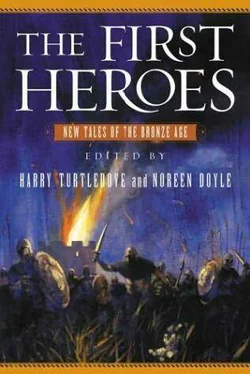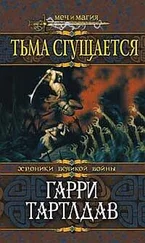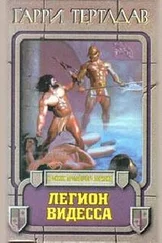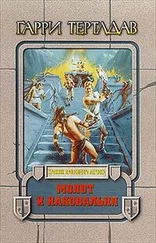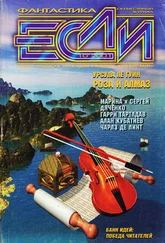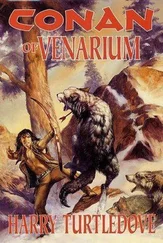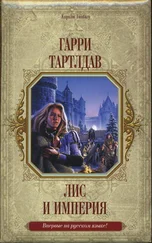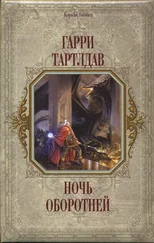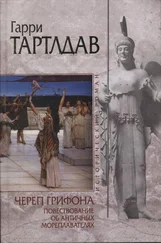Гарри Тертлдав - The First Heroes
Здесь есть возможность читать онлайн «Гарри Тертлдав - The First Heroes» весь текст электронной книги совершенно бесплатно (целиком полную версию без сокращений). В некоторых случаях можно слушать аудио, скачать через торрент в формате fb2 и присутствует краткое содержание. Жанр: Фантастика и фэнтези, на английском языке. Описание произведения, (предисловие) а так же отзывы посетителей доступны на портале библиотеки ЛибКат.
- Название:The First Heroes
- Автор:
- Жанр:
- Год:неизвестен
- ISBN:нет данных
- Рейтинг книги:3 / 5. Голосов: 1
-
Избранное:Добавить в избранное
- Отзывы:
-
Ваша оценка:
- 60
- 1
- 2
- 3
- 4
- 5
The First Heroes: краткое содержание, описание и аннотация
Предлагаем к чтению аннотацию, описание, краткое содержание или предисловие (зависит от того, что написал сам автор книги «The First Heroes»). Если вы не нашли необходимую информацию о книге — напишите в комментариях, мы постараемся отыскать её.
The First Heroes — читать онлайн бесплатно полную книгу (весь текст) целиком
Ниже представлен текст книги, разбитый по страницам. Система сохранения места последней прочитанной страницы, позволяет с удобством читать онлайн бесплатно книгу «The First Heroes», без необходимости каждый раз заново искать на чём Вы остановились. Поставьте закладку, и сможете в любой момент перейти на страницу, на которой закончили чтение.
Интервал:
Закладка:
"Since?" Ankhtifi rasps. Is this doubt in his son's voice? Could it be? Ankhtifi's next breath catches in his throat. But Idy says, "Not even then—not ever, before or after! Did Sobekhotep call himself Great Overlord? Did the god Horus plan out his tomb? Did the god Hemen dictate a spell to guard it? Did any god ever proclaim anyone other than Ankhtifi to be peerless, whose like has never before been seen nor ever will be seen? Who else has ever called himself the hero, the brave?"
With his staff Ankhtifi strikes a pillar with such force that a little yellow paint scrapes away. It does not matter. The relief carved upon its face will endure for a million years.
There are murmurs in the dark. Sasobek comes forward with his broom and sweeps the imperceptible flecks from the floor. Sand has come along on Ankhtifi's sandals, and Sasobek discreetly attends to that, too.
The falcon stirs in the shadows, rasping claws along the standard upon which he perches when at rest. None sees him, none hears him, but Ankhtifi, and none but he and the falcon is party to the agreement between them.
Ankhtifi walks to the edge of the burial shaft cut into the center of the floor, like a black pool that gives no reflection, that refuses the light. His staff prods its darkness. "Do you remember Khuu, the wretch of Edfu?"
"Yes!" the workmen cry, and Idy says, "I do."
"Men killed their neighbors, the fields of Edfu were left untended like marshland. This is the state of affairs that those in Thebes would wish upon the entire countryside. They deny our rightful King Neferkare, a child of the House of Khety, and would place their own line of wretches upon the Horus-throne. Horus himself summoned me, Ankhtifi, to sail upstream and free knives from men's palms and make men embrace those who had slain their brothers."
"We remember that day," says Idy. The others echo him. "You spoke when all of us were silent, when the other lords had lost their speech and could not raise their arms."
"I led you to the river," Ankhtifi says. "It was a little higher in those days." A little, he thinks, just a little. "Do you remember?"
"We remember!" the men cry, and, as the falcon—it is full daylight; why is he still here? will the King in his Residence sleep the day through?—makes a noise like the bending of a copper saw, Ankhtifi remembers.
People were less hungry in those days. Boats were sailed upstream and rowed downstream, rudders set at sterns or quarters with less concern for sandbars and stones. There had been even better years with abundant harvests and fatted cattle and nets burdened with fish of all kinds, but those were all lost to living memory and known only through tales of the days of kings named Khufu and Unas and Pepy, when men were called northward to labor on great pyramids.
One day—that day—a boat came downstream. Its spars were laid across its beams, but there was no sail or rigging. Eight men manned its oars, a ninth kept his hand at the tiller, and women and many children huddled in its wet bottom, for most of the deck planking had been taken up.
"Where is the Great Overlord? We have sworn not to take our hands from looms and tiller until we have come to the city where the Great Overlord lives! Our hands bleed! We have passed by Nekhen because he was not there! Is he here in Hefat?" cried the helmsman as the rowers pulled in their oars. Two of them leapt into the river and drove the boat ashore as the children dumped themselves overboard and splashed in the water until their mothers joined them and herded them to land. They crouched in a place of a little shade of a tree, where they looked like twigs broken from its branches. The helmsman said, "Where is the Great Overlord of this district?"
"The Great Overlord is where he should be, attending to trouble when it comes to his shore," said Ankhtifi. These were not fit men: like the women and children, their limbs were thin, their stomachs distended, and they wore cloaks of bruises and welts. "Where are you from? Are you people of mine?"
"Would that we were," said the helmsman, "or else we would not have trouble to bring to your shore, my lord. We come from Edfu in this old boat that we took from a boatwright before he could break it up for timber."
"If the boatwright should come in search of his craft, you might be punished. I may punish you for theft anyway."
"He won't come after it, my lord. He's dead, but not by our hands. His brother killed him, because he would not pledge his heart to Khuu's new lord."
"New lord!" Ankhtifi exclaimed. "Our lord, Neferkare, still wears the crowns in the Residence at Neni-Nesut, so the administrator of Edfu has no new lord. I, the King's Seal-bearer, would have been informed if he had flown to heaven."
"Neferkare is king in Neni-Nesut and Lower Egypt, and here in the District of Nekhen if you say so, but he is not the king of Edfu any longer," said the helmsman. "Khuu has declared it."
"What manner of abomination is this? Has some vile Lower Nubian sorcerer laid a spell on Khuu's heart?"
The helmsman did not know; he had spoken all that he could of the matters of big men, and he, a little man, was tired and hungry and his wife and children were crying on the shore. Ankhtifi learned the helmsman was in fact a potter and, although Hefat had potters already, Ankhtifi appointed him a place where he might build a little house and workshop beside the rest.
That evening Ankhtifi laid a banquet for these people on the river-bank and another in his pillared hall, where he summoned his sons and his council. They ate choice cuts of beef, drank good beer, ate white bread, and spoke of what the potter had told them.
The Overseer of Troops of Hefat, Minnefer, said, "The District of Edfu lies at the southern border of our district, and we are very near the northern. It is a long way."
"Khuu is like a wound in the foot of the King," Ankhtifi said. "We are the hands of the King."
"And where is the King's heart but in the Residence at Neni-Nesut," murmured Minnefer, "far to the north at the entrance of the Faiyum. He might as well dwell in Syria." "He is near the gods and honors them, to ensure that the river floods in its season. That inundation must pass Edfu before it reaches us. Would you have a rebel between us and the first floodwaters?"
"The vile Lower Nubians lie between us and the first floodwaters, and what ill is that? Unless they're drinking up the water of the river, to make it rise so poorly as it does nowadays." Everyone laughed, even Ankhtifi. "If Edfu falls," Ankhtifi said, as his smile withered word by word and the laughter drained out of his voice, "what of Elephantine, to the south? Will it fall to Khuu? Will Khuu then join with the Nubians upstream? Will they together push north with the current and attempt to crush us?"
"Ha," said Minnefer, slouching on his stool, "for once in your life you're too ready for a fight, Ankhtifi! Usually you're all speech and council. Life is good in Hefat. I am old enough to know. Don't go looking for death in Edfu. Death is bad anywhere, but worst away from home. A rebel against our King would have to arise in Elephantine for there to be any real trouble. It will not happen."
"And did you think a rebel would arise in Edfu?"
"Oh, no, but you did, Ankhtifi the Brave!" the workmen say, and for a moment Ankhtifi does not know where he is: why is his hall so dark, why has the smell of the roast evaporated, replaced by the taste of dust in his mouth, and why are workmen here in the place of his councilors? Why are these men so thin? Where are his other three sons?
"Khuu was ever a wretch and a rebel," Idy says. "You could not fail against him."
Could he? No, he could not, because the god said so. And suddenly it is as if he stands not on the perfectly clean floor of a nearly finished tomb but on the dusty pyramid mountain that workmen's picks and chisels have not yet carved out. It is as if the title Great Overlord of Edfu is not yet his, and as if the falcon does not yet follow him in shadows.
Читать дальшеИнтервал:
Закладка:
Похожие книги на «The First Heroes»
Представляем Вашему вниманию похожие книги на «The First Heroes» списком для выбора. Мы отобрали схожую по названию и смыслу литературу в надежде предоставить читателям больше вариантов отыскать новые, интересные, ещё непрочитанные произведения.
Обсуждение, отзывы о книге «The First Heroes» и просто собственные мнения читателей. Оставьте ваши комментарии, напишите, что Вы думаете о произведении, его смысле или главных героях. Укажите что конкретно понравилось, а что нет, и почему Вы так считаете.
